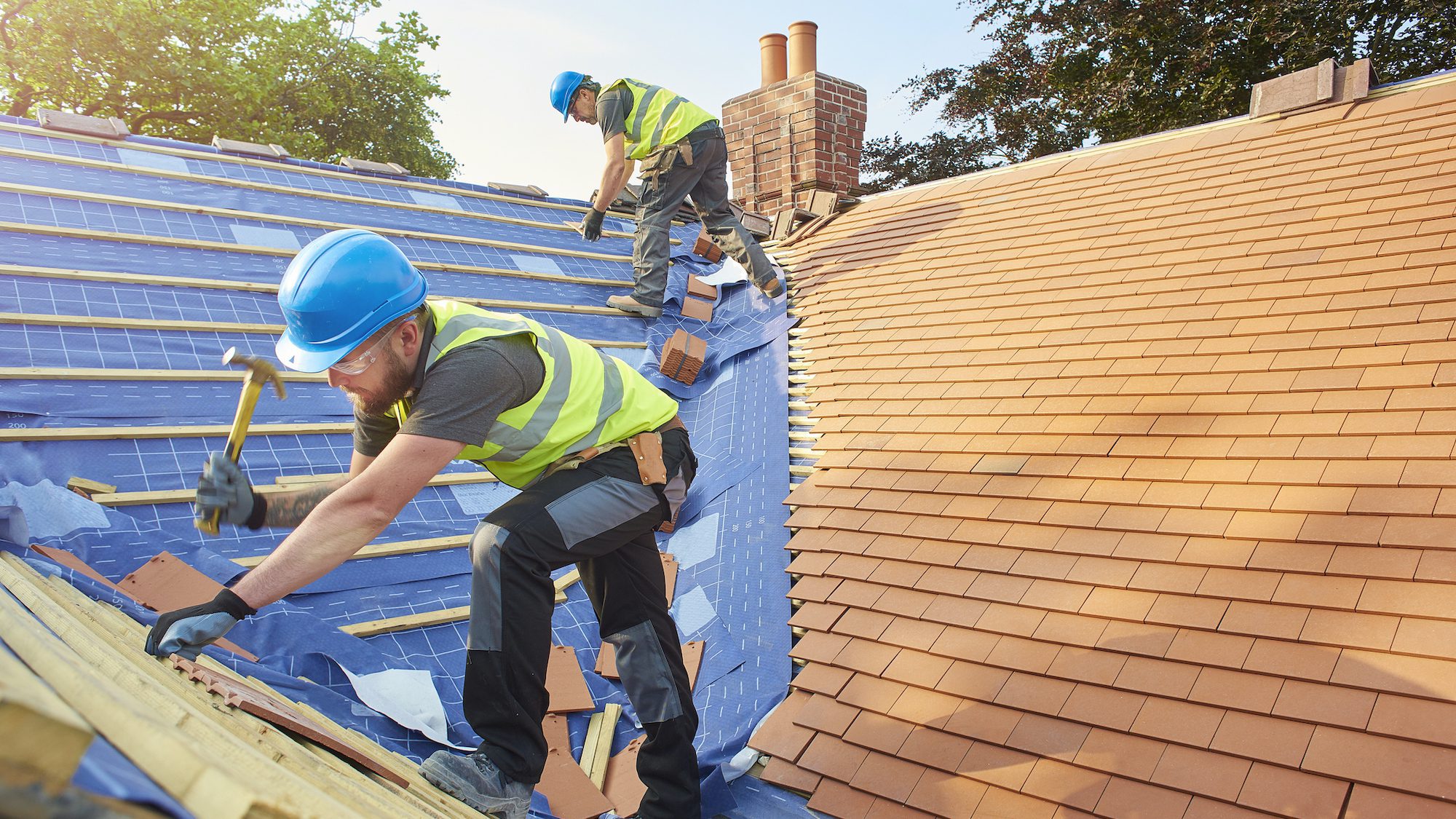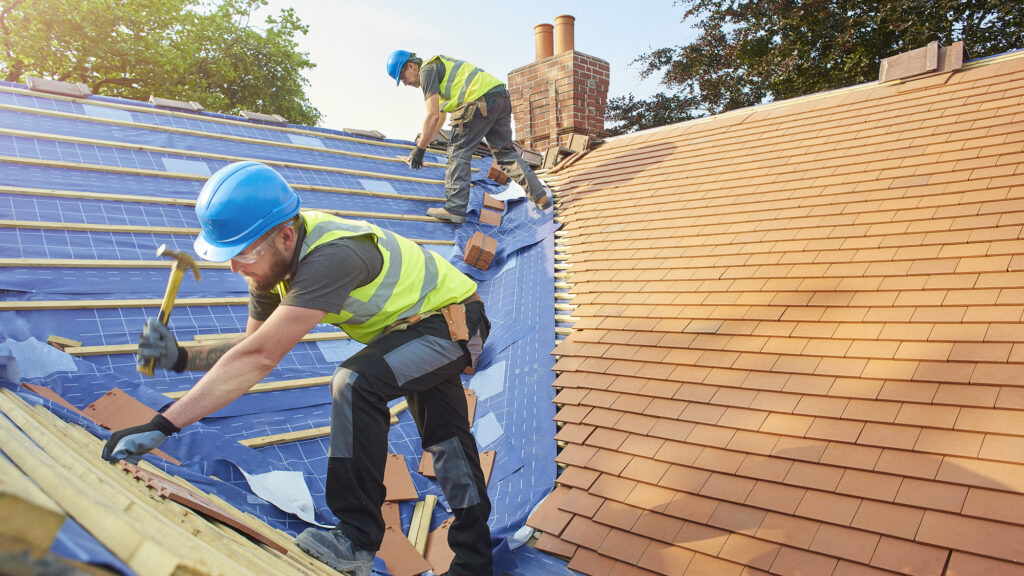
Getty Images
Homebuilders have slowed their hiring pace, even as buyers are clamoring for properties to purchase.
Analysts and economists say the slowdown is a reflection of the exceptional challenges construction firms are facing in sourcing building materials.
Employment in the broader construction sector was flat in April, according to figures released Friday by the Bureau of Labor Statistics. Drilling down to the residential side of the construction industry, the outlook is only slightly improved.
Around 4,400 specialty contractors who work on residential buildings were hired in April, a small uptick yet down from the nearly 19,000 jobs added in March. And March aside, the pace of hiring has slowed in 2021 thus far.
It’s a shift from earlier in the pandemic. While the residential construction sector saw large job losses in March and April of last year as the economy shut down in response to burgeoning COVID-19 case counts, it quickly rebounded.
Between February 2020 and April 2021, the sector has actually added more than 46,000 jobs.
“It’s one of the few sectors that has posted some gains,” said Robert Dietz, chief economist for the National Association of Home Builders.
So why the recent slowdown? It largely relates back to the price of wood, experts say.
Material shortages cause bottlenecks for homebuilders
Labor shortfalls in other sectors — including logging — are affecting builders’ ability to hire. The number of Americans employed in the logging industry dropped slightly in April, according to the preliminary numbers from the Bureau of Labor Statistics, making for the third consecutive month of declines.
The situation “is creating a problem getting necessary building materials out of the factories and onto the job sites,” said Carl Reichardt, Jr., a managing director and home-building analyst at investment bank BTIG.
It’s not just lumber, though — shortages of steel and appliances are also a factor. And while some of these goods and materials are produced in the U.S., most are imported from Canada or overseas.
The material shortages are driving up the price of new homes, pushing the cost some $35,000 higher, according to research from the National Association of Home Builders. More than that, it’s dragging out the duration of construction projects. “They’re laying down a foundation, but they’re not proceeding to frame the home,” Dietz said.
With less work to do as builders wait for supplies to arrive, many have opted to hold off on taking many more new sales, or hiring more workers on the off-chance they aren’t able to do the work.
Homebuilders also employ salespeople to handle the customer-facing side of the business. There, too, builders have remained hesitant to ramp up hiring. “The large public builders have a tremendous order backlog right now,” Reichardt said.
The bottlenecking caused by the supply shortage means that many companies are already at capacity, so boosting sales volumes isn’t a concern. Consequently, builders aren’t looking to increase their workforce of salespeople.
“We actually have been hiring very few salespeople over the last couple of quarters because sales have been very robust,” Eric Lipar, CEO and chairman of LGI Homes, said during the company’s quarterly earnings call this week.
Prior to the pandemic, builders faced a shortfall of workers
The situation playing out in the construction sector is a major shift from before the pandemic. In an industry survey conducted in February 2020, more than 4 out of 5 builders said they expected to face serious challenges related to the cost and availability of labor, the National Association of Home Builders reported.
“As job losses were elevated for the rest of the economy in 2020 builders and remodelers took advantage of that and recruited individuals,” Dietz said.
Still, builders face limits on how many people they can hire from other industries since they rely on skilled labor. It takes time and money to train workers who are new to job. The industry also faces challenges diversifying its workforce to expand the range of people at its disposal.
“Only 3% of construction occupation — that is people swinging hammers and working on construction sites — are women,” Dietz said. “There a lot of work to be done in terms of recruitment efforts.”
Homebuilders’ struggles will create more pain for buyers
The housing market is in dire need of a greater supply of homes. The number of properties for sale has fallen to record lows in recent months, in part because sellers have remained hesitant to list their homes for fear of finding themselves without a place to live.
Recent data from Realtor.com suggests that sellers are slowly beginning to return to the market, easing some of the supply constraints.
You may see some people throw in the towel and decide to wait until next year.
Decades of under-building has caught up with the housing market. Following the Great Recession, which hit homebuilders hard, construction firms maintained a very slow pace of fabricating new homes. Homebuilding did not keep up with the formation of new households, and now those households are looking for properties to buy.
Builders have ramped up the pace of construction last year, but the bottlenecks they are now facing will push home prices higher.
“With the lack of inventory and with price growth where we’ve seen it, that probably is going to encourage people to broaden their search criteria,” said Mike Fratantoni, chief economist at the Mortgage Bankers Association. “Maybe they’ll accept a little bit longer commute or a little bit different mix of attributes in a home if they’re really determined to buy this year.”
In time, many buyers may reach a breaking point, especially if mortgage rates start to rebound higher again and create affordability issues.
“You may see some people throw in the towel and decide to wait until next year,” Fratantoni said.
Despite the disappointing jobs report, homebuilder stocks — including D.R. Horton, Lennar Corp. and PulteGroup — were all up in Friday afternoon trading, exceeding the gains of the S&P 500 and the Dow Jones Industrial Average.
The post Bad News for House Hunters: Hiring Has Slowed for Construction Workers appeared first on Real Estate News & Insights | realtor.com®.
